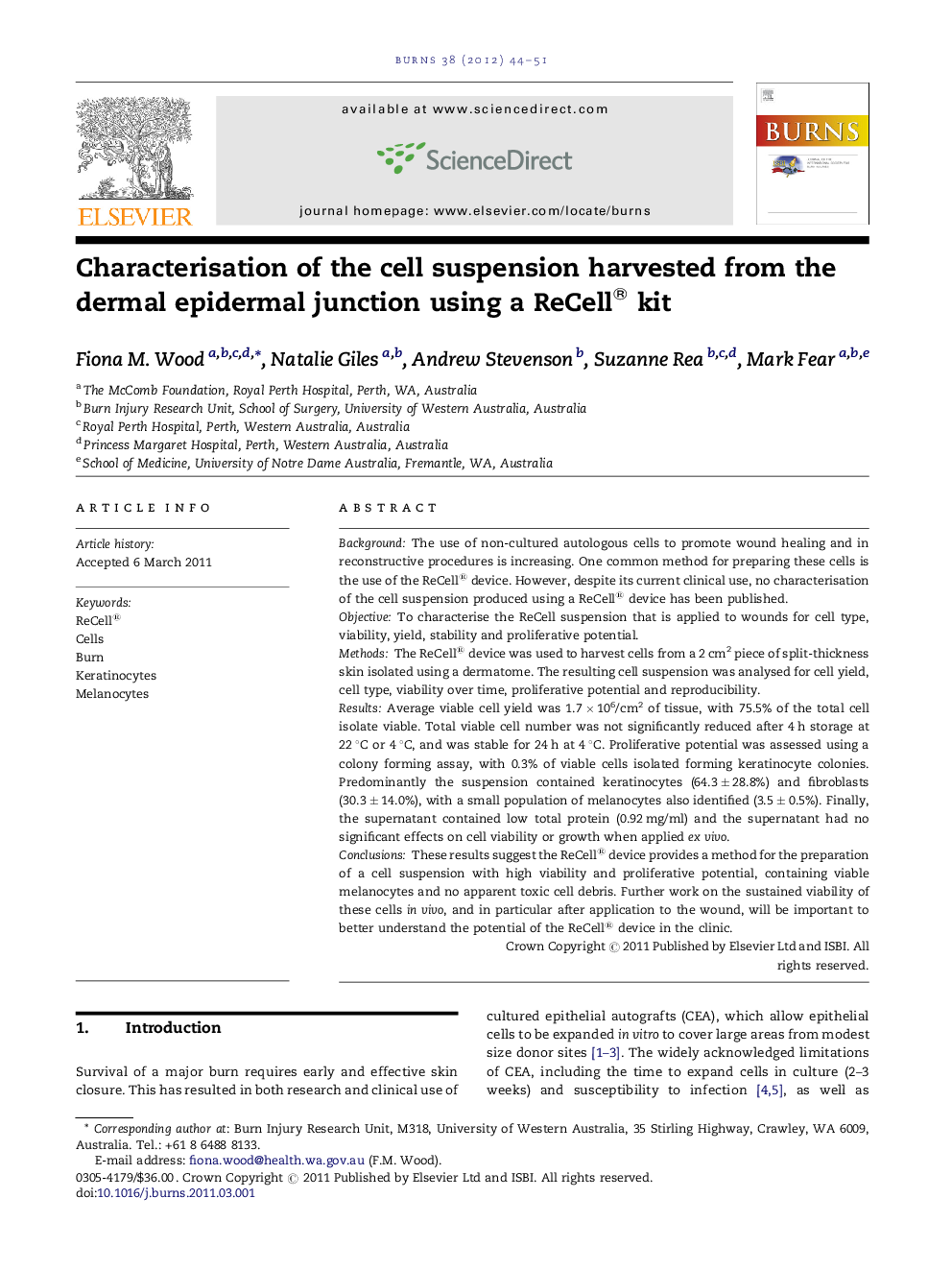| کد مقاله | کد نشریه | سال انتشار | مقاله انگلیسی | نسخه تمام متن |
|---|---|---|---|---|
| 3105277 | 1191679 | 2012 | 8 صفحه PDF | دانلود رایگان |

BackgroundThe use of non-cultured autologous cells to promote wound healing and in reconstructive procedures is increasing. One common method for preparing these cells is the use of the ReCell® device. However, despite its current clinical use, no characterisation of the cell suspension produced using a ReCell® device has been published.ObjectiveTo characterise the ReCell suspension that is applied to wounds for cell type, viability, yield, stability and proliferative potential.MethodsThe ReCell® device was used to harvest cells from a 2 cm2 piece of split-thickness skin isolated using a dermatome. The resulting cell suspension was analysed for cell yield, cell type, viability over time, proliferative potential and reproducibility.ResultsAverage viable cell yield was 1.7 × 106/cm2 of tissue, with 75.5% of the total cell isolate viable. Total viable cell number was not significantly reduced after 4 h storage at 22 °C or 4 °C, and was stable for 24 h at 4 °C. Proliferative potential was assessed using a colony forming assay, with 0.3% of viable cells isolated forming keratinocyte colonies. Predominantly the suspension contained keratinocytes (64.3 ± 28.8%) and fibroblasts (30.3 ± 14.0%), with a small population of melanocytes also identified (3.5 ± 0.5%). Finally, the supernatant contained low total protein (0.92 mg/ml) and the supernatant had no significant effects on cell viability or growth when applied ex vivo.ConclusionsThese results suggest the ReCell® device provides a method for the preparation of a cell suspension with high viability and proliferative potential, containing viable melanocytes and no apparent toxic cell debris. Further work on the sustained viability of these cells in vivo, and in particular after application to the wound, will be important to better understand the potential of the ReCell® device in the clinic.
Journal: Burns - Volume 38, Issue 1, February 2012, Pages 44–51